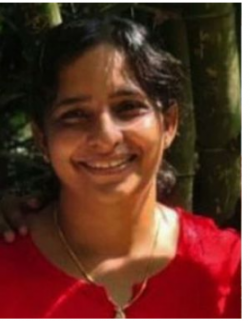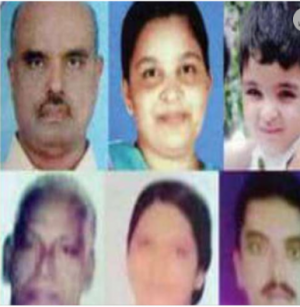
Jolly Koodathai, a 47-year-old woman from India, is hogging all headlines in the local press. And creating huge search traction worldwide. What's her claim to notoriety? The woman from Kerala, known as 'cyanide killer' has allegedly wiped out whole families in a bone-chilling crime spree that lasted 14 years.
In the bizarre tale that beats the weirdest fiction, Jolly killed a mother her age before becoming the stepmother to the two children of the dead woman. When she set out on her killing sprees, Jolly didn't obviously have an idea about how many people would die. Her youngest victim, a two-year-old girl, was not born when she started her murderous journey.
The wealthy, good-looking and educated mother of two killed her husband and parents-in-law before killing the wife and child of her alleged paramour. All for gaining control of the family's wealth and to carry on with the illicit relationships. Her choice weapon was the lethal potassium cyanide and her modus operandi was a charm offensive that threw investigators off the track.
Jolly Koodathai, aka Jolly Joseph, was married to the son of Tom Thomas, a government official in the north Malabar district of Kozhikode in Kerala. Her husband, Roy Thomas, was only her third victim when he died in 2998. The first victim was Annamma, her mother-in-law and a retired teacher.

The Kerala Police, which arrested Jolly, says she eliminated Annamma in 2002 to gain control of the family's day-to-day running. As per the police, Jolly served the mother mutton soup laced with potassium cyanide. The death was passed off as natural and the family got on with its life while Jolly made other plans. She hatched a plan to lay hands on the wealth of Tom Thomas and killed him in 2008. Again with cyanide served in boiled tapioca. She chose tapioca, a favourite dish in the region because the smell of cyanide is similar to that of this tuber delicacy.
Clandestine affairs
Jolly said Tom died of a heart attack. Nobody suspected, yet again. Next in line to die was her own husband, Roy. Jolly served him cyanide in 2011 and told the neighbours he died of a heart attack. Roy, 40, who had two children with Jolly, died because she wanted him out of her double life of alleged debauchery and many clandestine affairs.
When MM Mathew, her dead husband's uncle, raised doubts about the manner of Roy's death, Jolly killed him too, in his own house, by serving coffee laced with cyanide.
Now, with most in the family dead and family wealth in hand, Jolly aimed to settle down with the respectable school teacher who was already married with two children. Jolly trained gun on Sily, the wife of Shaju, whom she wanted to marry. In one fell swoop, she killed Sily's 2-year-old daughter in 2014 and Sily herself in 2016.

In 2017 married Shaju, the school teacher and the cousin of her murdered the husband. Then ensued a property dispute with the brother and sister of her murdered husband. Roy's siblings demanded fresh inquiry into his death, leading to the final expose of the most cold-blooded serial killer the state has ever seen.
"One thing that has happened in all these deaths is that all of them died soon after taking food," Superintendent of Police K.G. Simon said, adding that the early lead into the crime was the fact that Jolly was present at the death scene of each of the victims.
Double life
The police also arrested two of Jolly's accomplices in the serial murders. One of them is a cousin of her dead husband with whom she allegedly maintained a dubious relationship. This man, with the help of a jewellery worker, procured the cyanide that killed six people.
Jolly led a double life, using piety and religiosity to cloak her real self. People in the mainly Catholic village say she was a regular at the Sunday holy mass.
She even succeeded in hoodwinking the entire village about her real profession, making everyone believe for two decades that she was a college professor. "People in the locality had a good impression of her... We came to know only now that she worked at a beauty parlour," a neighbour told the Indian Express.
"She would often visit the cemetery where Roy and his family members were buried, to put flowers and light candles on their graves ... She got uneasy if she ever missed a Sunday Mass," vouches her second husband.
"She got uneasy if she ever missed a Sunday Mass."








